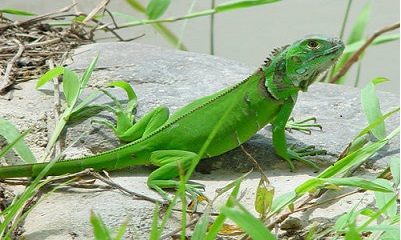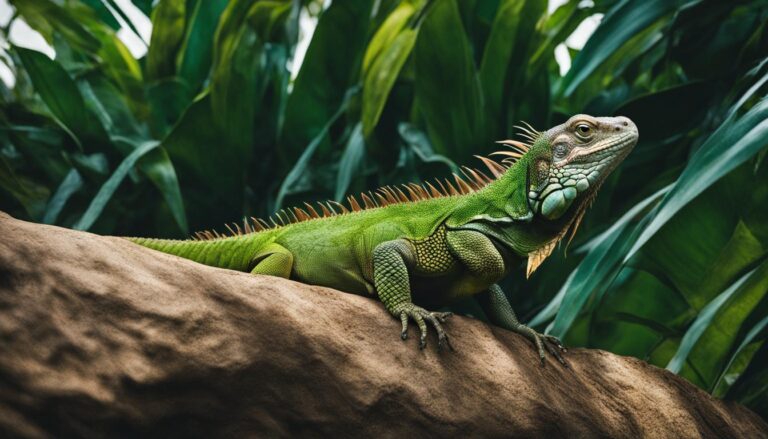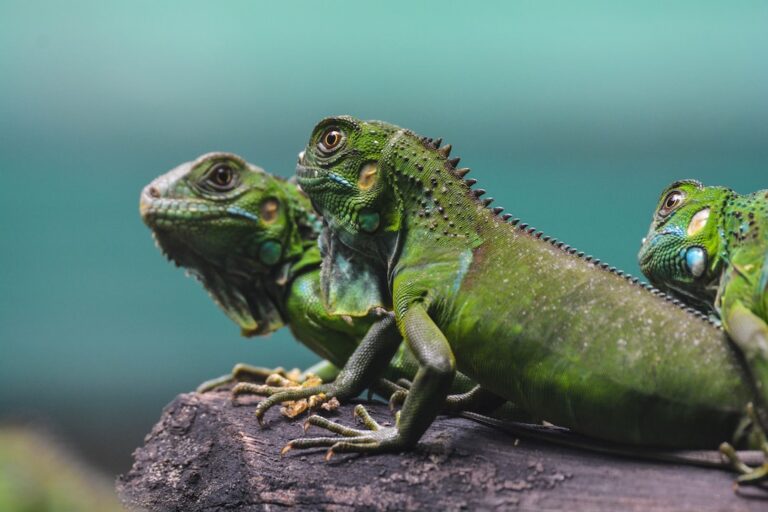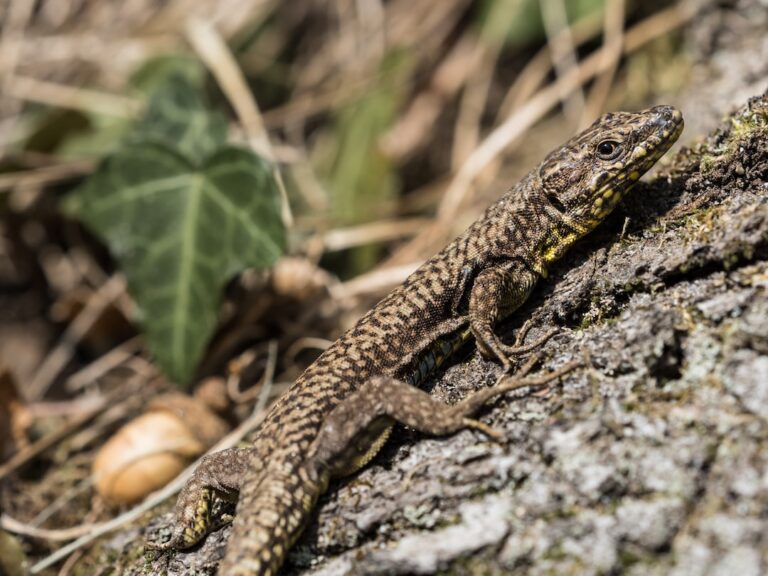Do Iguanas Kill Chickens?
The relationship between iguanas and chickens is an important topic to understand, especially for those who keep both animals. Iguanas are herbivorous reptiles that are native to tropical regions, while chickens are domesticated birds that are commonly raised for their meat and eggs. It is crucial to understand how these two species interact with each other in order to ensure the safety and well-being of both animals.
Table of Contents
The Diet of Iguanas: What Do They Eat?
Iguanas have a primarily herbivorous diet, consisting of leaves, flowers, fruits, and vegetables. They are known to be opportunistic feeders and will consume a wide variety of plant matter. This diet does not typically include animal protein, such as insects or small animals.
The diet of iguanas can have an impact on their interaction with chickens. Chickens are omnivorous animals that will eat almost anything, including insects and small animals. If iguanas are kept in an environment where they have access to chicken feed or other sources of animal protein, they may be more likely to exhibit aggressive behavior towards chickens.
The Behavior of Iguanas: Do They Attack Chickens?
Iguanas are generally docile creatures and do not pose a threat to humans or other animals. However, they can become aggressive if they feel threatened or if they perceive another animal as a competitor for resources.
In general, iguanas do not attack chickens. They are more likely to flee or hide when confronted by a chicken. However, there have been rare instances where iguanas have been known to bite or scratch chickens if they feel threatened or cornered.
The Anatomy of Iguanas: Could They Physically Kill a Chicken?
Iguanas have sharp teeth and claws that they use for defense and for climbing trees. While they are capable of inflicting injury, their physical anatomy is not designed for killing prey.
The size difference between iguanas and chickens also plays a role in their ability to physically harm each other. Iguanas are generally much larger and heavier than chickens, making it unlikely that they could overpower and kill a chicken.
The Impact of Iguanas on Chicken Coops and Flocks
While iguanas may not pose a direct threat to the lives of chickens, their presence can still have an impact on chicken coops and flocks. Iguanas are known to be excellent climbers and can cause damage to fences, walls, and other structures in an attempt to gain access to food or shelter.
Additionally, iguanas may compete with chickens for resources such as food and water. This can lead to increased stress levels for the chickens and may result in decreased egg production or overall poor health.
Preventing Iguana Attacks on Chickens: Tips and Tricks
There are several steps that can be taken to prevent iguana attacks on chickens and ensure the safety of both animals.
Firstly, it is important to provide separate feeding areas for iguanas and chickens. This will help to minimize competition for food and reduce the likelihood of aggression between the two species.
Secondly, ensuring that chicken coops are secure and free from any openings or gaps that iguanas could use to gain access is crucial. This will help to prevent iguanas from entering the coop and causing damage or stress to the chickens.
Lastly, providing ample hiding places and vegetation within the chicken coop can help to create a more natural environment for both iguanas and chickens. This will help to reduce stress levels and promote a more harmonious coexistence between the two species.
The Legal Implications of Iguana Attacks on Chickens
In some areas, there may be legal implications if an iguana attacks and injures or kills a chicken. It is important to familiarize oneself with local laws and regulations regarding the ownership and care of both iguanas and chickens.
If an attack occurs, it is important to document the incident and report it to the appropriate authorities. They will be able to provide guidance on how to proceed and may be able to offer assistance in preventing future attacks.
The Role of Predators in Iguana-Chicken Interactions
Predators play a significant role in the interaction between iguanas and chickens. In areas where natural predators, such as snakes or birds of prey, are present, iguanas may be more likely to exhibit defensive behavior towards chickens.
It is important to take steps to protect both iguanas and chickens from predators. This can include installing predator-proof fencing around chicken coops, providing secure hiding places for iguanas, and implementing predator deterrents such as motion-activated lights or noise devices.
The Importance of Properly Housing and Caring for Iguanas
Properly housing and caring for iguanas is crucial not only for their own well-being but also for their behavior towards other animals, including chickens. Iguanas require a large enclosure with ample space for climbing, basking, and hiding. They also need a varied diet that includes a mix of fresh fruits, vegetables, and leafy greens.
Providing proper environmental enrichment, such as branches or rocks for climbing, can help to keep iguanas mentally stimulated and reduce the likelihood of aggressive behavior towards other animals.
Finding a Balance Between Iguana and Chicken Safety
In conclusion, understanding the relationship between iguanas and chickens is essential for those who keep both animals. While iguanas are generally docile creatures that do not pose a direct threat to chickens, their presence can still have an impact on chicken coops and flocks.
By taking steps to prevent iguana attacks on chickens, such as providing separate feeding areas and ensuring secure housing, a balance can be found between the safety of both animals. It is also important to consider the role of predators in iguana-chicken interactions and to properly house and care for iguanas to promote their overall well-being and reduce the likelihood of aggressive behavior.
If you’re interested in reptiles and their behavior, you might also want to check out this article on do turtles fight to the death?. It explores the territorial nature of turtles and whether they engage in deadly battles with each other. Understanding the dynamics of turtle aggression can provide valuable insights into their behavior and help reptile enthusiasts create suitable habitats for their pet turtles.







